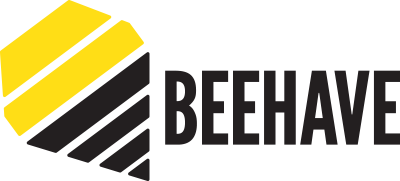By Kathy Troke-Thomas
Following on from a successful workshop at the Cornwall Area of Outstanding Natural Beauty (AONB) conference, the BEEHAVE team are busy extending the real-world impact of our award winning bee behaviour, growth and survival models with the help of land managers and farmers across Cornwall and Devon, South-West, UK.
Bees are important pollinators of many wild flowers and crops and are essential for a healthy environment and a healthy economy. We are working on the development of BEE-STEWARD, a computer software tool that enables the user to visualise how different land management options could affect bee colony survival and pollination rates. In collaboration with Natural England, Cornwall and South Devon AONBs and with support from the National Farmers Union, once completed, BEE-STEWARD will be freely available to aid farmers when considering land management options that effect pollinators.
We have begun to collate useful suggestions and ideas from the workshop that we can apply to the continued improvement of BEE-STEWARD. Here are just a few of those suggestions:
“Create a model that can be altered to be bespoke for the farmers key priorities and interests.”
“Incorporate results that relate to up-to-date stewardship schemes and other government incentives.”
“Offer links to other farmers who have used BEE-STEWARD and share success stories.”
We still need valuable guidance from forward-thinking farmers. Ensuring that the target audience is consulted as we develop the software is essential to producing an efficient, relevant and user-friendly tool. Over the next months we will start a series of focus groups where we can refine BEE-STEWARD with help from farmers and land managers. During these focus groups we plan to discuss the future of farm management that benefits bees and business and test BEE-STEWARD out on real farm maps and management plans.
Our next focus groups are on Wednesday 29th and Thursday 30th November 2017 at the Environment and Sustainability Institute, University of Exeter, Penryn Campus, Penryn, Cornwall TR10 9FE. For more information or to join our focus group please contact BEE-STEWARD researcher Grace Twiston-Davies on g.twiston-davies@exeter.ac.uk
Kathy Troke-Thomas is a Laboratory and Teaching Assistant at the University of Exeter. Kathy has been working on stakeholder engagement and communications for the “Farms for AONBees” project, a collaboration between the Environment and Sustainability Institute and Cornwall Area of Outstanding Natural Beauty. She has a BSc in Conservation Biology and Ecology from the University of Exeter and is passionate about wildlife-friendly land management and conservation communication and outreach.


